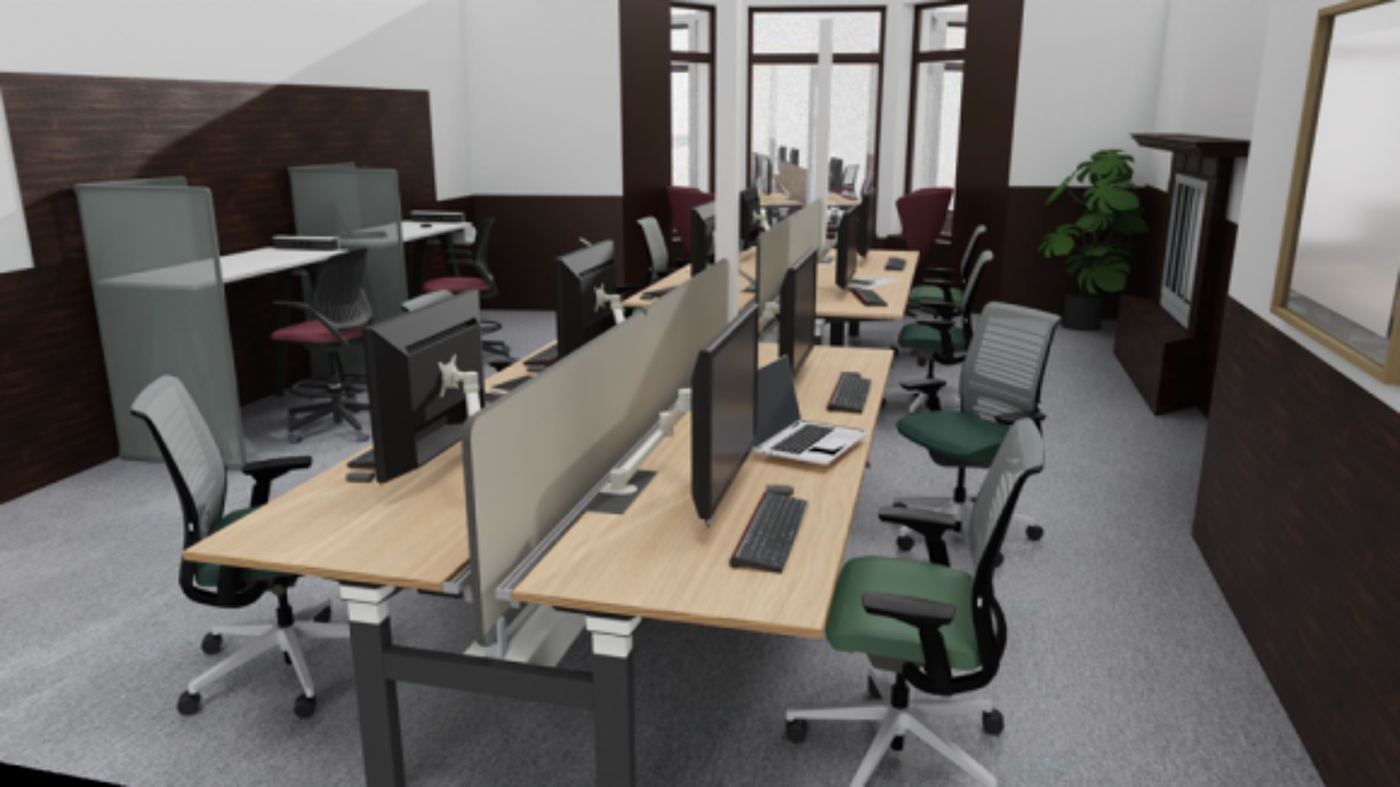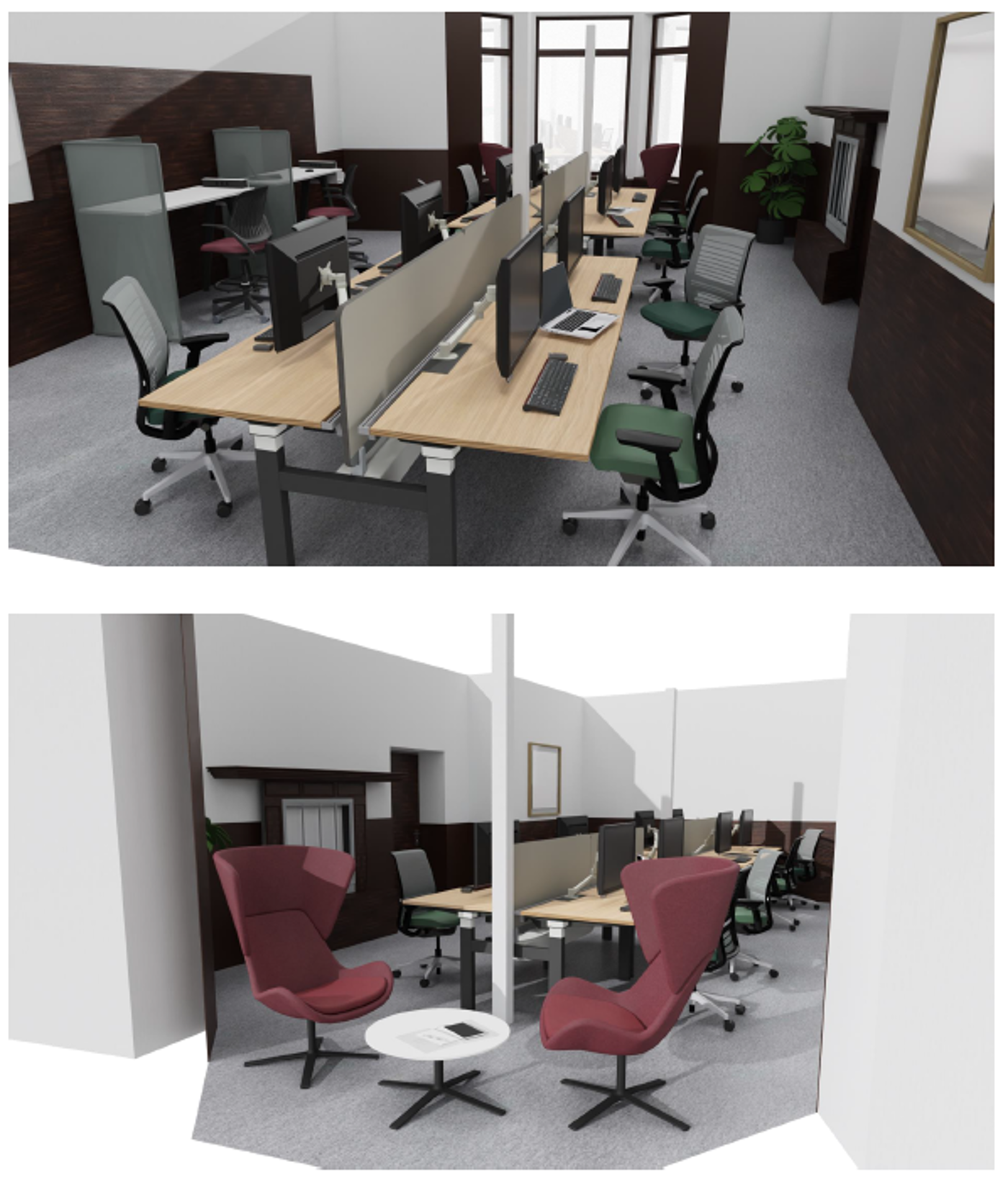School of Humanities – Reutilising existing space to create a more equitable working environment
In recent years, the School of Humanities struggled to find sufficient office space for new staff, academic visitors, and post-doctoral researchers. In addition, spaces for post-graduate research (PGR) students were limited, and often PGR students were located in shared spaces out with their subject areas. At the same time, the school wanted to build and enhance staff and student communities and bring both back into their buildings.

Blank Slate Thinking
Working with space planners from our Estates directorate, colleagues explored how the school could better utilise their existing space within their buildings on University Gardens and Oakfield Avenue. Through consultative exercises with the building users, they engaged in “blank slate thinking” to consider how they worked within the school and to generate ideas, suggestions, and recommendations. During these conversations they considered the following question:
“If we were just about to move into these buildings for the very first time, how would we organise the space?”
As with many parts of the University estate they faced a particular challenge in that their buildings are listed and so restricted in what they could do. This required everyone involved to be inventive with their ideas and solutions.

Innovative ideas
From the consultative exercises, the ideas they set out to take forward were:
- Repurposing large academic offices so that they become collaborative spaces for research centres with bookable hot desking spaces
- Redesigning workspace to better meet the needs of the professional services teams
- Creating neighbourhood spaces for postgraduate students and post-doctoral researchers with lockers and touchdown spaces
- Creating small dedicated bookable “zoom offices” for private online conversations
- Incorporating spaces for conversation and relaxation
From those ideas, estates colleagues produced a set of designs with various possibilities and final designs were signed off by colleagues within the school.
What's next?
Work has been underway over the summer, with final designs being approved and spaces prepared for renovation, which will be completed in 2023. These spaces will act as a valuable model for what is possible in parts of our estate, and will hopefully inspire others to think about possibilities for utilising space in many different areas of the University.
“Creating this space creates the opportunity to bring people back to campus and rebuild our communities. It creates an environment where colleagues who wish to can work closely and collaborate together in appropriate rooms.” Professor Michael Brady, Head of School of Humanities

